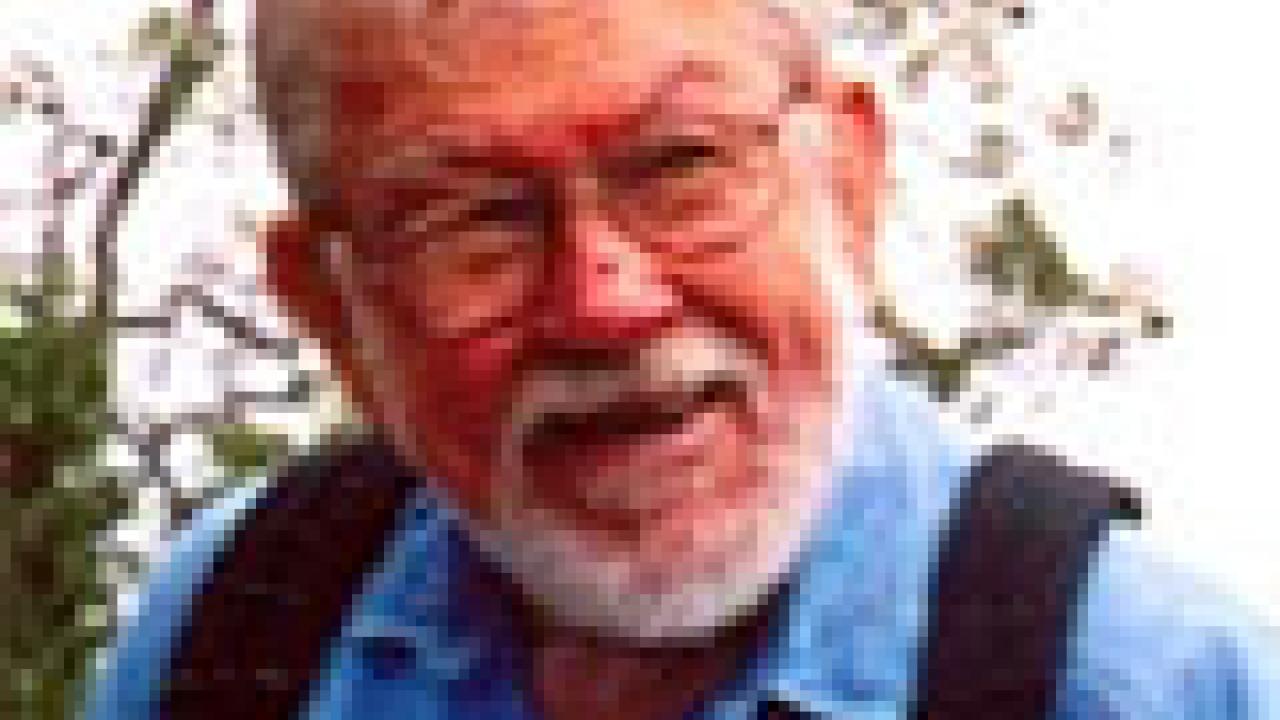Grady Linder Webster Jr., professor emeritus at the University of California, Davis, passed away Oct. 27 from the effects of a stroke suffered a week earlier. He was 78 years old. He is survived by his wife of nearly 50 years, Barbara Donahue Webster, by daughter Susan Verdi Webster, and by generations of students who became colleagues.
"Grady inspired young people with his passion and energy for seeing plants in their natural habitat and his global knowledge of vegetation," said Michael Barbour, a UC Davis professor of plant sciences and a colleague of Webster's for 38 years. "We will remember him for the importance of his contributions to our knowledge of tropical and subtropical plants; his infectious, wry sense of humor; and his warm and constant support of his friends and family."
Webster's awards and achievements included National Science Foundation (NSF), Guggenheim, Smithsonian and Rackham fellowships; the Engler Medal from the International Association for Plant Taxonomy; the Merit Award from the Botanical Society of America (BSA); and the Asa Gray Award from the American Society of Plant Taxonomists (ASPT). He served as president of the Botanical Society of America, California Botanical Society, and American Society of Plant Taxonomists, and was director of NSF's Program for Systematic Biology.
He was elected as a fellow of the California Academy of Sciences and of the Linnaean Society of London, and appointed as a research associate at the UC Berkeley Jepson Herbarium and the Plant Resources Center of the University of Texas. His extensive publications include major contributions to the knowledge of and relationships among plants in floras of North America, California, Mexico, Brazil, Venezuela, Nicaragua, Ecuador and Panama, as well as four books, more than 100 journal articles and more than 70 book reviews.
Webster was born on April 14, 1927, in Ada, Okla., to Irena Lois Heard and Grady Webster Sr. While he was still a child, his family built a home on 100 acres of cedar-oak woodland near Austin, Texas. His father was a newspaper publisher, and Webster's first boyhood jobs were in the newspaper's office -- experience that no doubt contributed to his lifelong loves of reading and keeping informed about world affairs. He first became interested in plants in high school, largely due to one teacher, Fred Barkley. He enrolled at Stanford University, where he was commissioned an ensign in the U.S. Navy in 1947. He completed a bachelor's degree in botany at the University of Texas two years later and went on to finish a Ph.D. in botany at the University of Michigan, under the supervision of Professor Rogers McVaugh.
Following his doctoral work, Webster received one of the first post-doctoral fellowships offered by the National Science Foundation. It allowed him to spend four years at Harvard University, working with Professor I.W. Bailey. There he met Barbara Anne Donahue, who was then a Ph.D. student in plant morphology. They were married in 1956.
In 1958, Webster accepted an assistant professorship at Purdue University, a position that allowed him to accelerate the pattern of extensive travel already begun while a student at the University of Texas. Global field research to areas of difficult access was to characterize his entire career as a plant systematist. The travel was fueled by his research focus on spurges (Euphorbiaceae), a large and complex family of flowering plants widely distributed throughout the tropics and subtropics, containing nearly 9,000 species (almost twice the number of native plants in California).
Grady, Barbara and their 7-year-old daughter Susan moved to Davis in 1966, where he accepted an appointment as professor in the Department of Botany and director of the University Arboretum. Later, he also became director of the university's Tucker Herbarium. His major teaching activities were in systematics, biogeography and pollination ecology, and in the supervision of approximately 20 doctoral students, many of whom went on to academic positions of their own on several continents. He conducted major research expeditions to Mexico (including Baja California), the Caribbean islands, Central America, South America, Hawaii, Australasia, Pakistan, Africa and Europe, collecting more than 34,000 plant specimens that today are deposited in major herbaria throughout the world.
Webster's extensive research and publications were one of the reasons that botanists throughout the United States regularly ranked UC Davis's plant biology program in the top three in the country in the past 30 years. Although he technically retired in 1993, his mentorship of students, research activities, pace of publication, and miles of travel continued undiminished. Several research papers were in-press at the time of his unexpected death.
Colleague Bruce Baldwin, a professor at UC Berkeley, recently wrote that "Grady's contributions have been truly monumental and constitute a massive body of work that rivals anything produced through the initiative and influence of a single individual in the recent history of plant systematics." Piero Delprete, a past graduate student, fondly recalls several trips he shared with Webster to Ecuador's remote and pristine tropical preserve, Maquipucuna. "Grady was a walking botanical encyclopedia. It was just incredible to me how he could have accumulated so much information. I have learned from him an exemplary professional life, human integrity, and appreciation for the beauty and diversity of nature."
Grady Webster's life will be celebrated at a gathering of friends at the University Club on the UC Davis campus on Saturday, Nov. 5, at 2 p.m.
A memorial fund for Grady Webster is being established in the College of Biological Sciences. For more information or to make a contribution, please contact Kathy Sachs Barrientes at ksbarrientes@ucdavis.edu or (530) 754-9253.
